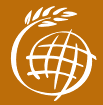Policymakers urged to include local knowledge in aid projects

Dipak Gyawali, research director of the Nepal Water Conservation Foundation, and a former minister of water resources, criticised the extent to which aid policies — and the science related to them — had been dominated in recent years by the international aid agenda, rather than by locally defined needs.
As an example, he said, aid programmes in Nepal had focused for several decades on reforestation aimed at reducing flooding in nearby Bangladesh.
But farmers had been planting trees during this period to protect soil fertility and so their family income, not to prevent flooding elsewhere, he added.
"We have a lot of international science on which recommendations and predictions are made," said Gyawali. "But we must remember that millions of people are making decisions that are nothing to do with the Millennium Development Goals."
He also said that development policy was influenced too much by the "eagle-eye science" of the international scientific community and not enough by the "toad's eye science" based on knowledge and experience on the ground.
"Both are necessary, but neither is sufficient," he said. "Eagle-eye science lacks roots in the community, while toad's eye science lacks a broad perspective."
Suman Sahai, a geneticist who runs the Gene Campaign, an organisation that protects farmers' rights in India, gave other examples of the need to pay closer attention to local knowledge in decision making.
She said that indigenous science often had as much to offer as modern science, adding that the lack of parity between the two was partly because of the power structure behind new science and technology.
"If problem-solving is to be local, the knowledge applied to it needs to be credible locally," she said. "Solutions do not have to be credible across countries, but only where they are relevant."
It was important to make use of different knowledge systems, Sahai said. For example, in many developing countries, it was only the 'hard' sciences that were used a source of advice on policy decisions.
But problems had arisen when other disciplines, including the social sciences, were ignored, she said.
For example, India's Green Revolution, which started in the 1970s, had focused on increasing crop yields through selective breeding and intensive farming, but this had led to the neglect of rain-fed farming in India, causing major problems in parts of the country with low rainfall, Sahai said.
If greater attention had initially been paid to the likely impacts of the Green Revolution, she said, "we might have had a different type of revolution, one that had the potential to combine high-yield varieties with sustainable farming practices. Technical advances were only part of the solution."
Lidia Brito, director of science policy at UNESCO (the UN Educational, Scientific and Cultural Organization), told the meeting that science advice on development-related issues needed to work across scales "from the global to the local" and to connect up diverse groups of stakeholders.
Although scientists raised many important questions about the way that science was used in policymaking, "society can do so even better", she said.
"So if we want to discuss structures for science policy advice at the global level, we have to look at the interactions between science and society."
It was also important that scientific evidence was included at every point in the decision-making process, Brito said. "It is not just about saying to a policymaker: 'These are the facts and I would advise you to go a certain way', but also about designing the process so that scientific evidence can be part of it," she said.

